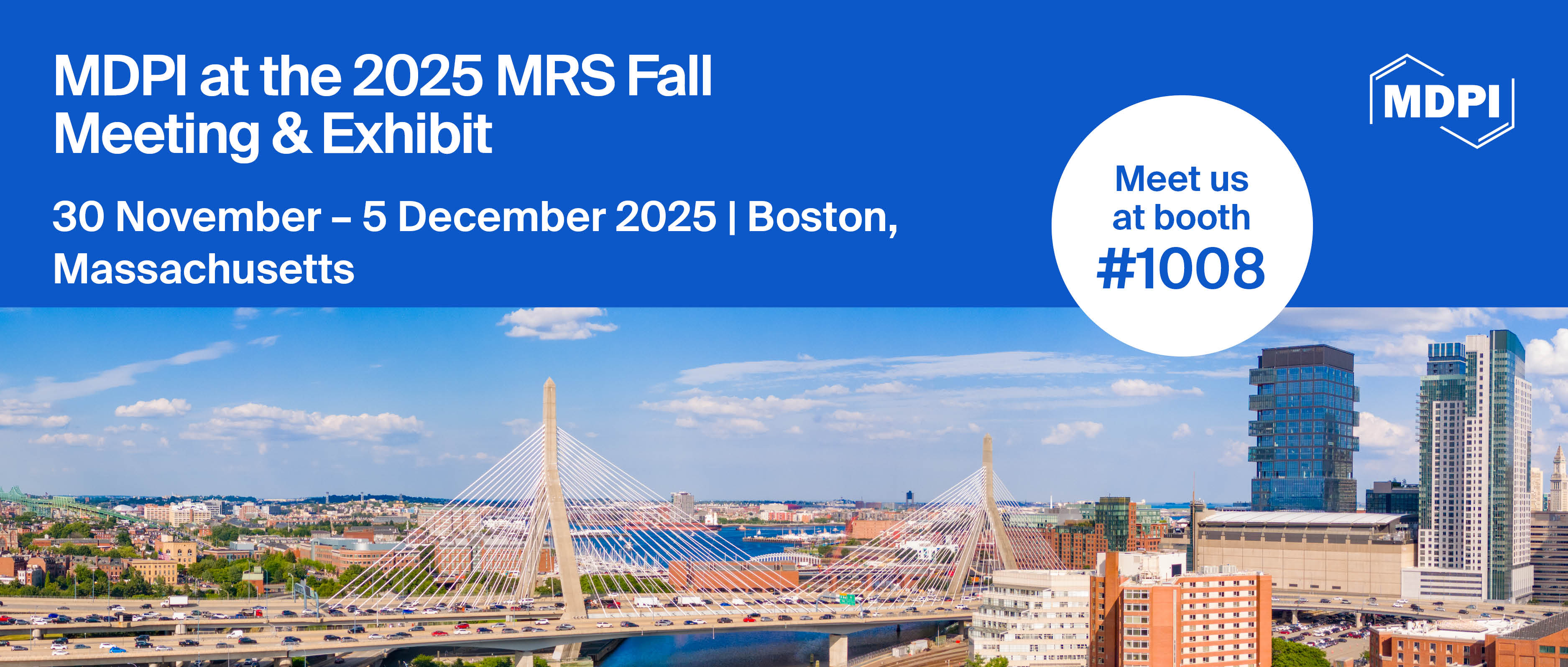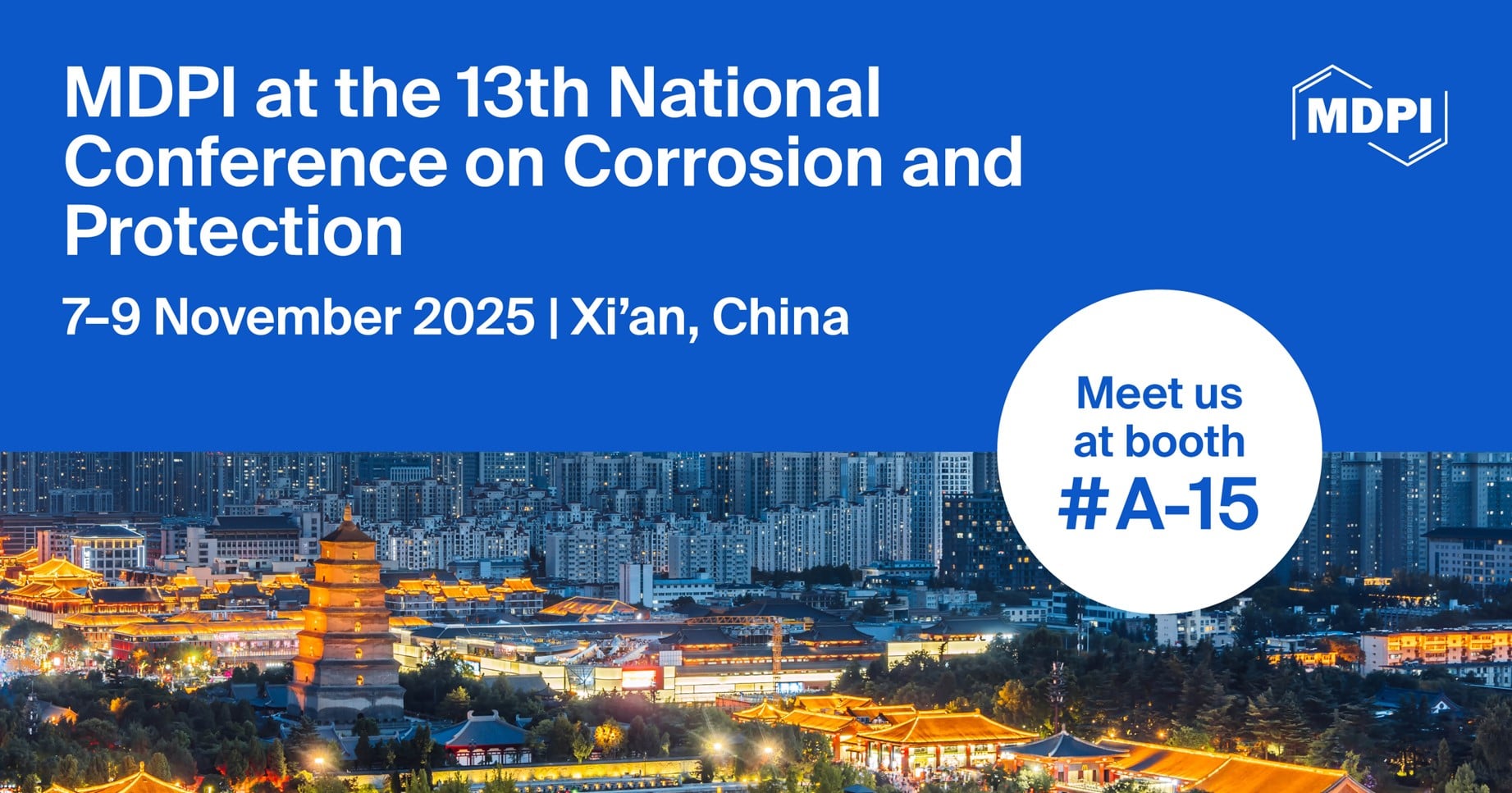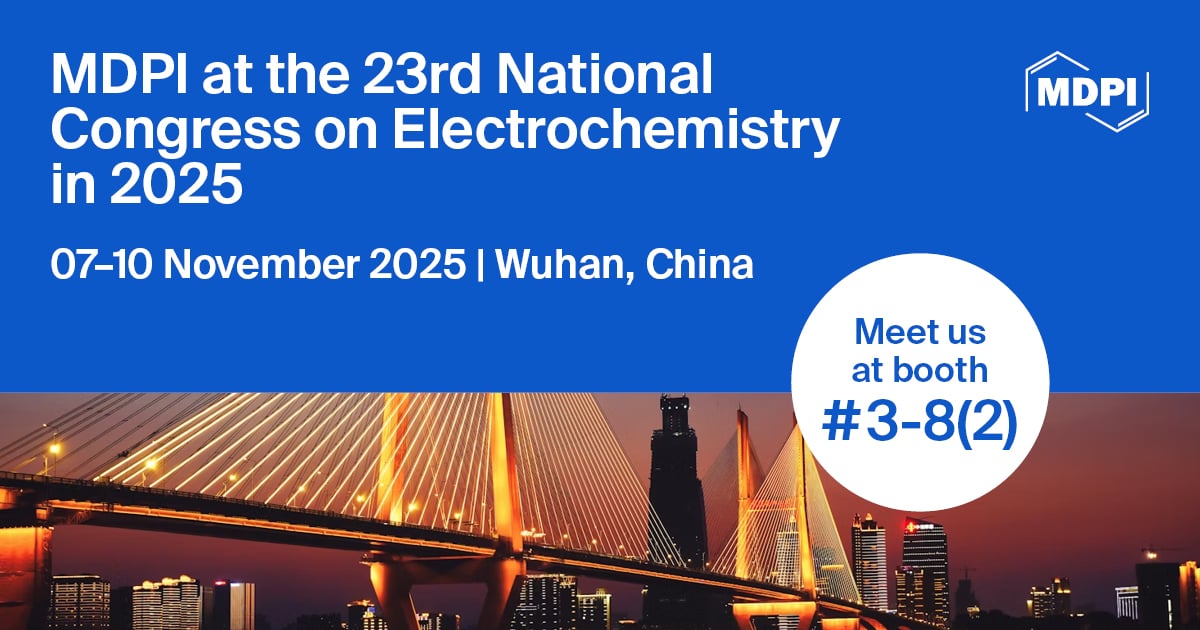- 2.4Impact Factor
- 5.2CiteScore
- 20 daysTime to First Decision
News & Conferences
Latest News & Announcements
Latest Conferences
Propose a Conference Collaboration
Promote and publicise your upcoming conference with MDPI.
All News & Conferences
News & Announcements
Article Layout and Template Revised for Future Volumes
11 December 2025
News & Announcements
Meet Us at the 2025 MRS Fall Meeting and Exhibit, 30 November–5 December 2025, Boston, Massachusetts, USA
26 November 2025
News & Announcements
MDPI Launches the Michele Parrinello Award for Pioneering Contributions in Computational Physical Science
6 November 2025
News & Announcements
Meet Us at the PractiCORR 2025, 25–27 November 2025, Warsaw, Poland
5 November 2025
News & Announcements
MDPI INSIGHTS: The CEO's Letter #28 - WSF11, Nobel Laureates, Proofig AI, Romania Summit, STM and FBF
4 November 2025
News & Announcements
Meet Us at the 13th National Conference on Corrosion and Protection, 7–9 November 2025, Xi’an, China
21 October 2025
News & Announcements
MDPI’s Newly Launched Journals in September 2025
15 October 2025
News & Announcements
MDPI INSIGHTS: The CEO's Letter #27 - OASPA 2025, COUNTER 5.1, UK Summit in London, MDPI at the Italian Senate
2 October 2025
News & Announcements
2024 MDPI Top 1000 Reviewers
1 October 2025
News & Announcements
Nobel Prize — The Science Behind the Prize
30 September 2025
News & Announcements
Meet Us at the 23rd National Congress on Electrochemistry in 2025, 7–10 November 2025, Wuhan, China
29 September 2025
of 9













